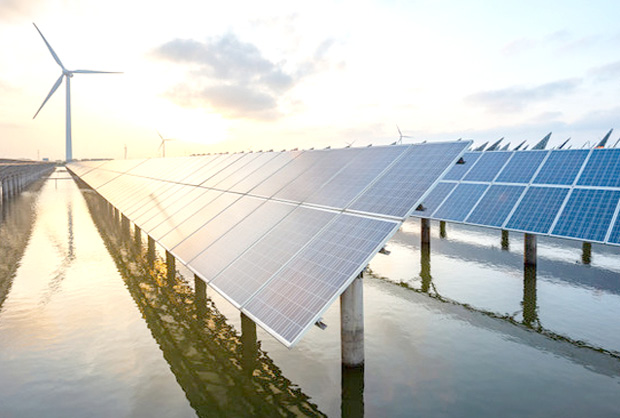In line with the aims of Bahrain’s National Energy Transition Plan, the state has stepped up efforts to increase the share of its renewable energy to 5 percent of its total electricity generation by 2025.
Kamal bin Ahmed Mohammed, president of the country’s Electricity and Water Authority, said the move is part of a strategy to diversify the state’s energy resources and achieve a renewable resource share of 20 percent by 2035, according to Bahrain News Agency.
EWA has already taken several measures such as simplifying the applications’ connection process and setting the procedures to facilitate the process of integrating renewable energy resources to the authority’s electricity network, Mohammed explained.
“Bahrain is dedicated to its transition to sustainable energy and its commitments in COP26 by investing in renewable energy resources and ultimately reducing carbon emissions to net zero by 2060,” he said.
The authority’s president went on to say that EWA has adopted the eligibility criteria for the enrollment of distributed renewable energy resources’ consultants and contractors.
Currently, there are 54 contractors and 93 consultants accredited for distributing renewable energy resources in Bahrain.
Additionally, in an attempt to ensure top-notch quality of the equipment and components utilized in the renewable energy system, the authority has adopted precise technical standards.
Moreover, EWA has partnered with Bahrain’s Information and eGovernment Authority to digitize all the stages of renewable energy applications through the unified portal referred to as Benayat.
Benayat is an online system for the issuance of building permits in Bahrain, which ensures further simplifying and accelerating the applications’ process.
So far, a total of 303 applications have been submitted for the installation of renewable energy from residential, commercial and industrial sectors, Mohammed disclosed.
Out of these applications, more than 180 applications have been successfully commissioned and connected to the authority’s electricity distribution network, with a total connected capacity exceeding 38 megawatts, Mohammed noted.
By 2026, over 150 MW is expected to be further installed in EWA’s electricity distribution network, he added. EWA’s mission is to provide reliable and quality supplies of electricity and water in Bahrain for the sustainable development of the state.—Agencies










